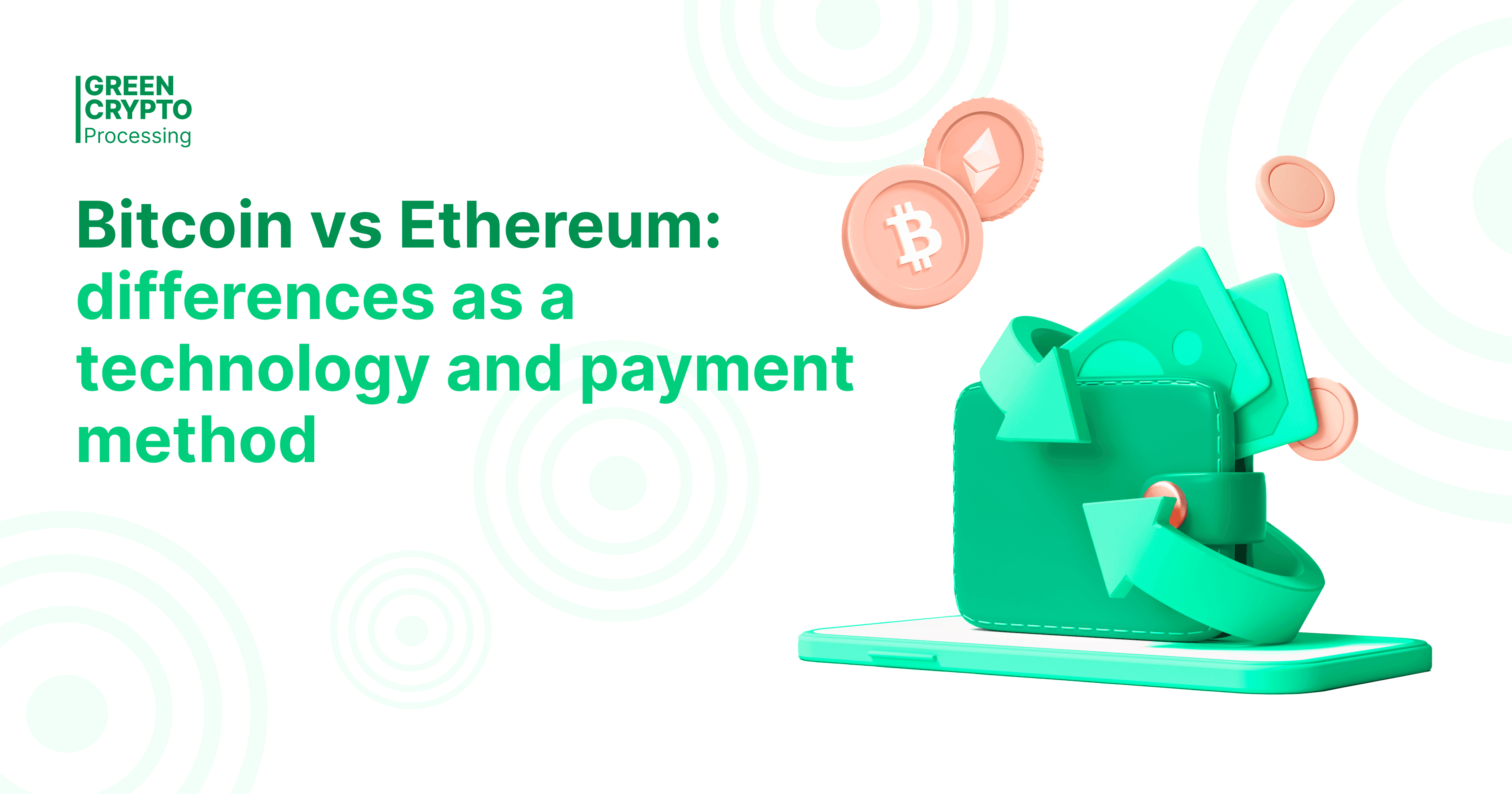Blog
Bitcoin and Ether are the world's best-known cryptocurrencies that have largely shaped blockchain technology and the modern view of finance. In this article, we will delve into the differences between BTC and ETH in terms of technology, use cases and how each cryptocurrency has performed as an investment.

Bitcoin as the first cryptocurrency
Created in 2008, bitcoin was the first decentralised currency that could be sent between peer-to-peer nodes without the need for an intermediary. The concept of its developer, Satoshi Nakamoto, was to create a secure, available and government-free digital asset — and since bitcoin has become the largest cryptocurrency by market capitalisation. Over the years, the 'digital gold' has been mined, bought and sold with trillions of dollars worth.
Ethereum as the 'global computer'
Ethereum, launched in 2015, has become a global decentralised computer platform of a new type. Vitalik Buterin's motivation for development of the new technology was the limited functionality of Bitcoin: the programmer wanted to create a platform that would allow the development of decentralised apps (DApps) not limited to financial transactions.
Ethereum soon became one of the most widely used blockchain platforms in the world, supporting thousands of DApps and digital assets, including stablecoins, NFT and DeFi. Ethereum's native cryptocurrency, Ether, which is used to pay for transactions and power the network, is consistently ranked second in market capitalisation after bitcoin.
BTC vs ETH: differences as a technology
The Bitcoin blockchain and the Ethereum network differ significantly in terms of technology, including functionalities, use cases and scalability:
1. Miners vs Stakers
The most notable difference is the consensus mechanism each blockchain uses. Bitcoin uses the Proof of Work (PoW) algorithm, while Ethereum uses Proof of Stake (PoS). Thus, while bitcoin miners solve complex mathematical problems therein validating transactions and adding new blocks to the blockchain, Ethereum validators stake — lock up Ether in a smart contract as collateral.
2. Transactions vs smart contracts
Bitcoin and Ethereum use different scripting languages. Bitcoin leverages a more simple language limiting the blockchain's functionality to basic transactions. Ethereum, on the other hand, hosts smart contracts which can be created by users with any new rules, in addition to influencing token creation and governance systems. Smart contracts support the operation of decentralised apps, making transactions reliable, secure and transparent without the help of third parties.
3. Block size and scalability
The Bitcoin blockchain has a block size limit of 1 MB, which caps the number of transactions processed per second to around 7. As a consequence, the network becomes congested, has slow confirmation times and high transaction fees. Layer 2 solutions help reduce transaction costs and increase speed, but bitcoin's scalability is still a common concern among the crypto community.
The Ethereum blockchain was built with more scalability in mind. It handles 15 to 30 transactions per second. However, layer 2 solutions for Ethereum are improving, which will allow for faster and cheaper transactions in the future.
BTC vs ETH: which has more use cases?
Both BTC and ETH can be held in wallets, exchanged for other currencies, sent/received, loaded onto crypto debit cards and spent directly with merchants.
Bitcoin, being a digital ledger book, has relatively limited use cases compared to Ethereum, but it is an excellent choice as a store of value.
Ethereum, on the other hand, was designed with scalability and flexibility in mind, as well as the need to interact with thousands of DApps and experiences like lending/borrowing, NFTs and video games. Thus, in this term, Ethereum outperforms Bitcoin.
BTC vs ETH: which is the better investment?
Bitcoin and Ether are popular investments among the crypto community. Both currencies are a scarce resource and their prices are impacted by supply and demand. The price of ETH is also impacted by advances in technology and use cases. BTC, on the other hand, is in a more ossified environment, resulting in less risk and less upside potential in the future.
Thus, Ether now has more potential in the long term as it has clearer, more extensive and rapidly evolving use cases. Still, all cryptocurrencies are highly volatile and susceptible to unpredictable market fluctuations.
BTC vs ETH: which is better for crypto payments?
Both currencies are widely used for making payments, but 'digital gold' remains more popular: Bitcoin makes up over 40% of all crypto transactions, whereas Ether makes up around 11%. In addition, bitcoin transaction fees are usually lower, and many merchants prefer to accept payments in this currency.
Ethereum requires less confirmation time and supports not only Ether, but thousands of tokens and stablecoins, bringing price stability to the crypto-world. So in any case, the choice is up to you.
It's impossible to say definitively which is better — Bitcoin or Ethereum. Both systems are valuable but offer two different approaches. If you are looking for a stable, long-term solution and are willing to take moderate risk, Bitcoin is a good option. But if your goal is to earn multiple returns on investment, to participate in DApps development and to be the first to interact with innovations, take a closer look at Ethereum. And, of course, consider your personal financial goals, risk tolerance and crypto market conditions.